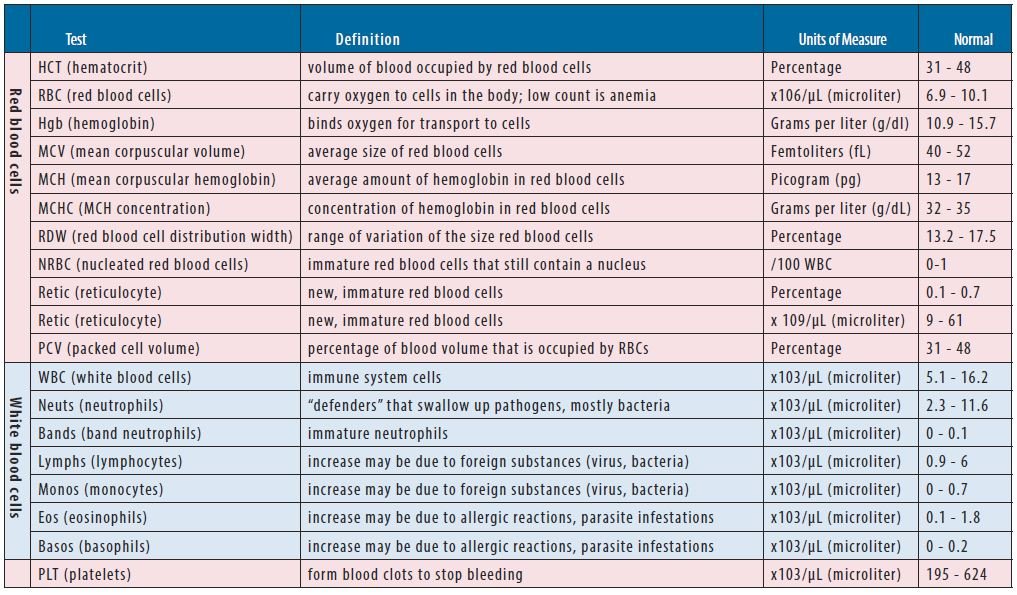belchonock Deposit Photos

It requires just a little blood, but the CBC, or complete blood count, can reveal important information about your cat’s health. It’s usually part of a senior wellness panel, diagnostic bloodwork for an ill cat, and as part of a pre-operative workup. It may also be used to evaluate your cat’s response to a medication or its possible side effects.
A blood sample is drawn from a vein in the forelimb, a hindlimb, or the jugular vein. It’s usually obtained quickly, minimum restraint and discomfort.
The blood is placed in a special tube that keeps the blood from clotting. From there, it may be used in different ways. For example, a tiny sample can be placed in a hematocrit tube or spread out on a slide and stained so that cells can be differentiated. Most clinics now use an automated analyzer to do basic cell counts, like red cells and white cells.
A full CBC includes stains for evaluation under a microscope, which allows separate counts of different types of white blood cells and to evaluate the health and age of the red blood cells.
The laboratory report for a CBC provides numerical results. Your veterinarian uses this information to make decisions for further testing. For example, a low hematocrit may mean the cat has suffered blood loss, is not producing enough red blood cells, or that red blood cells are being inappropriately destroyed in the bloodstream.
Mature red blood cells are smaller than young/new red blood cells and stain differently. A count for immature red blood cells is a reticulocyte count. If your cat is anemic, a high reticulocyte count is a good sign, since it suggests that your cat is responding to the low red blood cell population by producing more cells in the bone marrow and spleen.
An increase in your cat’s white blood cell count could mean a response to infection, an immune system problem, or cancer. White blood cells are part of your cat’s immune or defense system. Different types of cells get activated to combat different threats.
If your cat’s levels are at or near the high or low range, they may still be considered normal. Remember, the CBC is a gauge of your cat’s health. If the levels are out of range, your veterinarian may suggest additional testing or a follow-up blood test, based on the full results and any clinical symptoms your cat may be showing.
Cornell University Animal Health Diagnostic Center CBC Normal Ranges
Click Image to Enlarge





